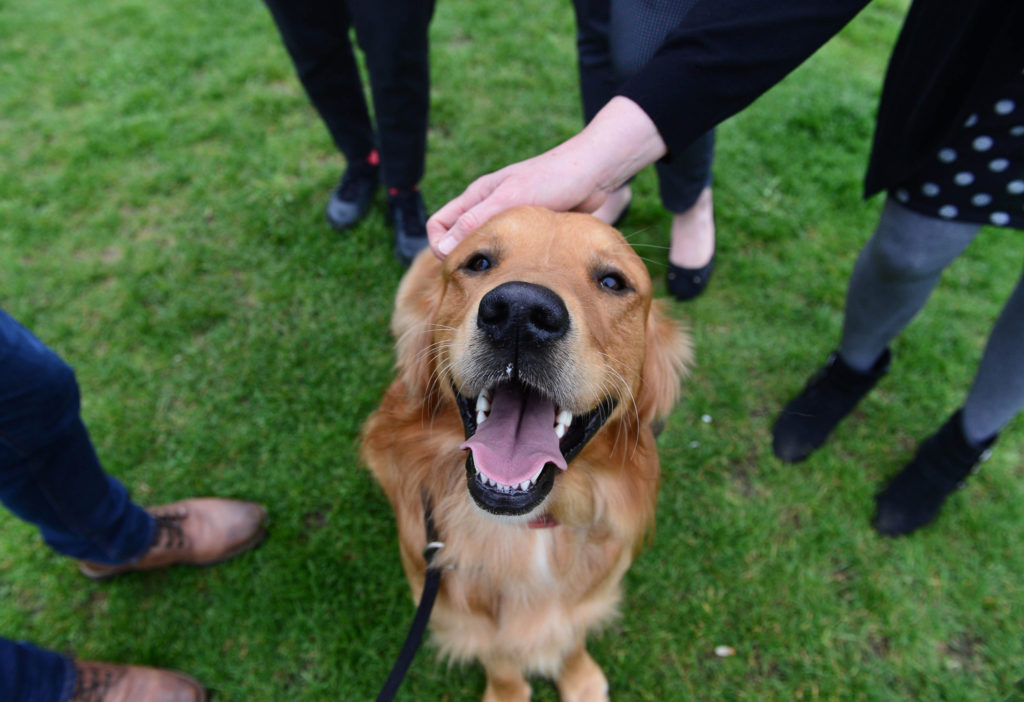Researchers in Scotland are warning that being overly affectionate with your pet could pose a serious risk to their health.
A new study, undertaken at the Glasgow Caledonian University, has found that treating your pet like a human “could be life-threatening” for both the animal and the owner.
Psychologist Dr Adele Dickson said that getting too close to your pet facilitate the spread of drug-resistant bugs and increase antibiotic-resistance.
“As the owner of a two-year-old golden retriever, I know how important that affectionate relationship between the owner and their pet is to both mental and physical health and wellbeing,” she said.
“I’m not saying pet owners need to stop showing affection for their companion animals because we know from our research, and from speaking to 23 British dog, cat and rabbit owners who shared their stories, that these behaviours are so deeply treasured they are unlikely to be amenable to change.”
 File photo of Buster the Golden Retriever. Image: Joey Hayes/Design Pics via ZUMA Wire
File photo of Buster the Golden Retriever. Image: Joey Hayes/Design Pics via ZUMA WireShe said making small changes to the way you interact with your pet can reduce the risk of antimicrobial resistance (AMR).
These include:
- Avoid kissing pets on the mouth.
- Don’t let them lick the mouth and nose.
- Wash hands after stroking animals - particularly before meals.
- Make sure they eat from their own bowls instead of household utensils.
“This close contact could potentially put adults, children and the pets themselves at risk of transferring bugs that are resistant to antibiotics through saliva,” said Dr Dickson.
“I would also advise any open wounds be covered so there’s no risk of transferring anything from skin to skin.”
She said the study should not cause panic among pet owners as the risk of AMR transmission from affectionate behaviour is “very low” for most people.
She noted that the “overuse and misuse of antibiotics” for both animals and people marks the biggest threat to public health – with antibiotics often viewed as the “the go-to drug for many domestic animal ailments.”
“The biggest take home message to pet owners from this study is to think twice about whether your pet, you, your children or other family members actually need antibiotics,” said Dr Dickson.
“The worst-case scenario if people don’t heed this advice is potentially catastrophic for the family and the pet.
“The consequences are very real and could be life-threatening.”








